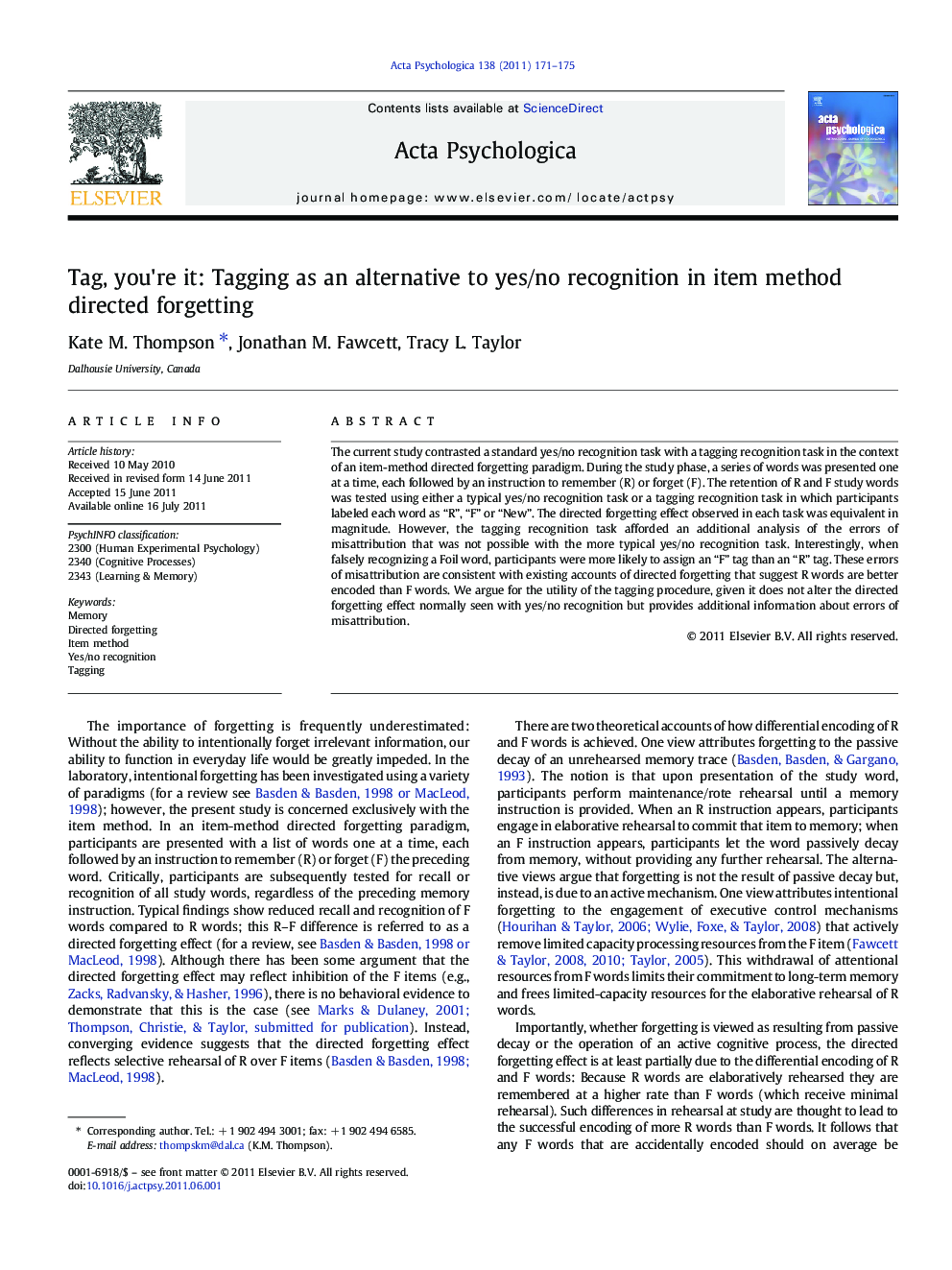| Article ID | Journal | Published Year | Pages | File Type |
|---|---|---|---|---|
| 920185 | Acta Psychologica | 2011 | 5 Pages |
The current study contrasted a standard yes/no recognition task with a tagging recognition task in the context of an item-method directed forgetting paradigm. During the study phase, a series of words was presented one at a time, each followed by an instruction to remember (R) or forget (F). The retention of R and F study words was tested using either a typical yes/no recognition task or a tagging recognition task in which participants labeled each word as “R”, “F” or “New”. The directed forgetting effect observed in each task was equivalent in magnitude. However, the tagging recognition task afforded an additional analysis of the errors of misattribution that was not possible with the more typical yes/no recognition task. Interestingly, when falsely recognizing a Foil word, participants were more likely to assign an “F” tag than an “R” tag. These errors of misattribution are consistent with existing accounts of directed forgetting that suggest R words are better encoded than F words. We argue for the utility of the tagging procedure, given it does not alter the directed forgetting effect normally seen with yes/no recognition but provides additional information about errors of misattribution.
► Tested memory with yes/no recognition and R/F/New (a.k.a. tagging) recognition tasks. ► Directed forgetting effect was similar in both yes/no and tagging recognition tasks. ► Response bias was more liberal in tagging compared to yes/no recognition. ► In the tagging task, falsely recognized Foils were tagged as “F” more than as “R”. ► This pattern is consistent with theories of directed forgetting.
